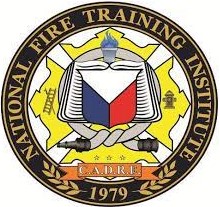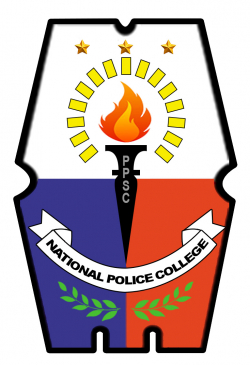SO ERICKSON C ROMERO SO GLORY R URSULUM IMPROVING RESPONSE TIME AND OPERATIONAL READINESS DURING FOREST FIRES: INSIGHTS FROM BFP ILOCOS NORTE

Type
Thesis
Authors
ROMERO ( ERICKSON C )
Category
Thesis
[ Browse Items ]
Publication Year
2024
Publisher
NFTI Library, Philippines
URL
[ private ]
Volume
1
Pages
91
Subject
Fire Officers Advance Course
Series Name
Abstract
ABSTRACT
This research explores the challenges and solutions for improving response times
and operational readiness during forest fires in Ilocos Norte, where an increasing number
of such incidents have raised concerns about the effectiveness of the Bureau of Fire
Protection (BFP) operations. The study addresses the current status of BFP Ilocos Norte's
forest firefighting efforts, factors impacting response times and readiness, encountered
challenges, and potential action plans for enhancement.
For this study, the researchers adopted Reason and Torbert’s (2010) integrative
research approach, which combines three interconnected perspectives: First-Person Inquiry
(personal reflection and self-awareness), Second-Person Inquiry (collaborative and
participatory research), and Third-Person Inquiry (broader community engagement). This
approach provides a comprehensive understanding of complex issues by integrating
personal introspection, collaborative dialogue, and systemic exploration.
Findings indicate that while most respondents reach fire locations within 45
minutes, delays of up to 2.5 hours occur due to difficult terrain, inadequate road access,
and adverse weather conditions. Recommended improvements include constructing and
upgrading access roads, increasing familiarity with terrain through detailed mapping and
briefings, and employing advanced technologies such as GIS and drones. Additionally,
enhancing communication systems, investing in specialized firefighting equipment, and
fostering inter-agency collaboration are crucial for efficient response.
The study also highlights the varied use and effectiveness of firefighting tools,
including swatters, backpack sprayers, and improvised items, with some limitations
pointing to the need for more advanced equipment. Key policies involve anti-burning laws
and adherence to standardized procedures outlined in the BFP Operational Procedure
Manual.
Mapping systems, although somewhat effective, are underutilized, with limitations
related to signal dependency and accuracy affecting their overall efficiency. Hindrances
such as difficult terrain, limited resources, procedural inefficiencies, and public
interference were identified. Recommendations stress the importance of improving
infrastructure, training, and equipment, while also updating policies to better align with
local conditions. Expanding training programs, investing in reliable mapping systems, and
increasing community engagement through fire safety awareness and mutual aid
agreements are essential for enhancing BFP Ilocos Norte's response capabilities and
operational readiness
This research explores the challenges and solutions for improving response times
and operational readiness during forest fires in Ilocos Norte, where an increasing number
of such incidents have raised concerns about the effectiveness of the Bureau of Fire
Protection (BFP) operations. The study addresses the current status of BFP Ilocos Norte's
forest firefighting efforts, factors impacting response times and readiness, encountered
challenges, and potential action plans for enhancement.
For this study, the researchers adopted Reason and Torbert’s (2010) integrative
research approach, which combines three interconnected perspectives: First-Person Inquiry
(personal reflection and self-awareness), Second-Person Inquiry (collaborative and
participatory research), and Third-Person Inquiry (broader community engagement). This
approach provides a comprehensive understanding of complex issues by integrating
personal introspection, collaborative dialogue, and systemic exploration.
Findings indicate that while most respondents reach fire locations within 45
minutes, delays of up to 2.5 hours occur due to difficult terrain, inadequate road access,
and adverse weather conditions. Recommended improvements include constructing and
upgrading access roads, increasing familiarity with terrain through detailed mapping and
briefings, and employing advanced technologies such as GIS and drones. Additionally,
enhancing communication systems, investing in specialized firefighting equipment, and
fostering inter-agency collaboration are crucial for efficient response.
The study also highlights the varied use and effectiveness of firefighting tools,
including swatters, backpack sprayers, and improvised items, with some limitations
pointing to the need for more advanced equipment. Key policies involve anti-burning laws
and adherence to standardized procedures outlined in the BFP Operational Procedure
Manual.
Mapping systems, although somewhat effective, are underutilized, with limitations
related to signal dependency and accuracy affecting their overall efficiency. Hindrances
such as difficult terrain, limited resources, procedural inefficiencies, and public
interference were identified. Recommendations stress the importance of improving
infrastructure, training, and equipment, while also updating policies to better align with
local conditions. Expanding training programs, investing in reliable mapping systems, and
increasing community engagement through fire safety awareness and mutual aid
agreements are essential for enhancing BFP Ilocos Norte's response capabilities and
operational readiness
Number of Copies
1
| Library | Accession No | Call No | Copy No | Edition | Location | Availability |
|---|---|---|---|---|---|---|
| NFTI Library | 676923 | 1 | Yes |

